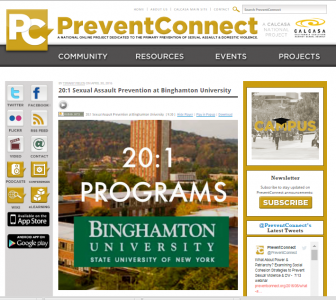Resources Library: Model Policies & Best Practices
Start a Search:
2018 LEGISLATIVE ADVOCACY GUIDE
2018 LEGISLATIVE ADVOCACY GUIDE
The Virginia General Assembly (GA) is back for the 2018 legislative session! The Action Alliance invites you to join us February 5th through February 9th to #AmplifySurvivorVoices and advocate for policies that empower survivors and prevent violence statewide! Hundreds of bills are introduced to the General Assembly (GA) Session each year, but few of them ever get signed into law. Grassroots legislative advocacy work is an opportunity for everyday people and concerned citizens to raise awareness of issues impacting Virginians – legislators listen!
Traditional legislative advocacy work means going in person to meet with lawmakers and their staff. However, not everyone has the time or means to do so, and that’s where virtual legislative advocacy, or virtual lobbying, comes in. Virtual legislative advocacy consists of any engagement with representatives in the GA through use of technology: phone calls, email, social media, and even good-old-fashioned letter writing. This guide is designed to help make engaging your legislators over technology as easy as possible.
Here are the four main sections:
1. PREPARATION: find out who your representatives are and what you’re going to say.
2. MAKING CONTACT: explore all the different ways you can engage with your representatives and decide on the best strategy or set of strategies for engagement.
3. IN-PERSON VISITS WITH YOUR LEGISLATORS: if you’re planning a visit, this section includes helpful tips, addresses, cheat sheets and more for your legislative visits!
4. FOLLOWING UP: Let us know how it went, share feedback, and help us thank supporters.
Click here to see the full guide.
20:1 Sexual Assault Prevention at Binghamton University Podcast

This 9:30 minute audio podcast by PreventConnect highlights the work done by Binghamton University in New York. The University has worked with Greek Life, Athletics, and a wide variety of students across the campus to implement the 20:1 sexual assault prevention and bystander intervention programs.
http://www.preventconnect.org/2016/04/201-sexual-assault-prevention-at-binghamton-university/
A Practical Guide for Creating Trauma-Informed Disability Domestic Violence and Sexual Assault Organizations
A Practical Guide for Creating Trauma-Informed Disability, Domestic Violence and Sexual Assault Organizations was developed through the Violence Against Women with Disabilities and Deaf Women Project of Wisconsin. It is designed to highlight and explore effective trauma-informed conditions or core values that victims, survivors and people with disabilities are finding essential for safety and healing. This document is a guide, not a manual. It is designed to lead readers on a journey of exploration into the context of these conditions to promote dialogue and understanding, and spur implementation of strategies for domestic violence, sexual assault and disability organizations to become more trauma-informed.
A-Z Advocacy Model: Asians and Pacific Islanders Build an Inventory of Evidence-Informed Practices
Asian and Pacific Islander domestic violence agencies have built an extraordinarily rich tapestry of approaches where advocates do everything it takes to mitigate barriers, challenge patriarchy, strategize to build safety and well-being, and redefine culture.
The A-Z Advocacy Model is anchored by five principles that analyze gendered and racialized cultural contexts, confront root causes, and engage in systems change and cultural transformation; all the while, holding women's equality and empowerment central to community well-being:
1. An analysis of intersectionality and patriarchy deepens the understanding of root causes and becomes fundamental to program design.
2. Culturally-specific programming means designing services that address ethnic and linguistic diversity within and among Asians and Pacific Islanders.
3. Survivor-centered advocacy is based on a culturally-specific analysis and definition of domestic and family violence.
4. Integrating an analysis of, and responses to, gender-based violence when working with API survivors of domestic violence became evidence-informed practice.
5. Engaging in systems advocacy builds gateways to services through collaboration, policy advocacy, and research.
Acknowledging Voluntary Services
This Power Point presentation was developed and presented by Mary E. Guiberson, from the Cascade Women’s Transitional Housing Program Manager, for the Virginia Department of Social Services Office of Family Violence Promising Practices Conference on September 17, 2013.

